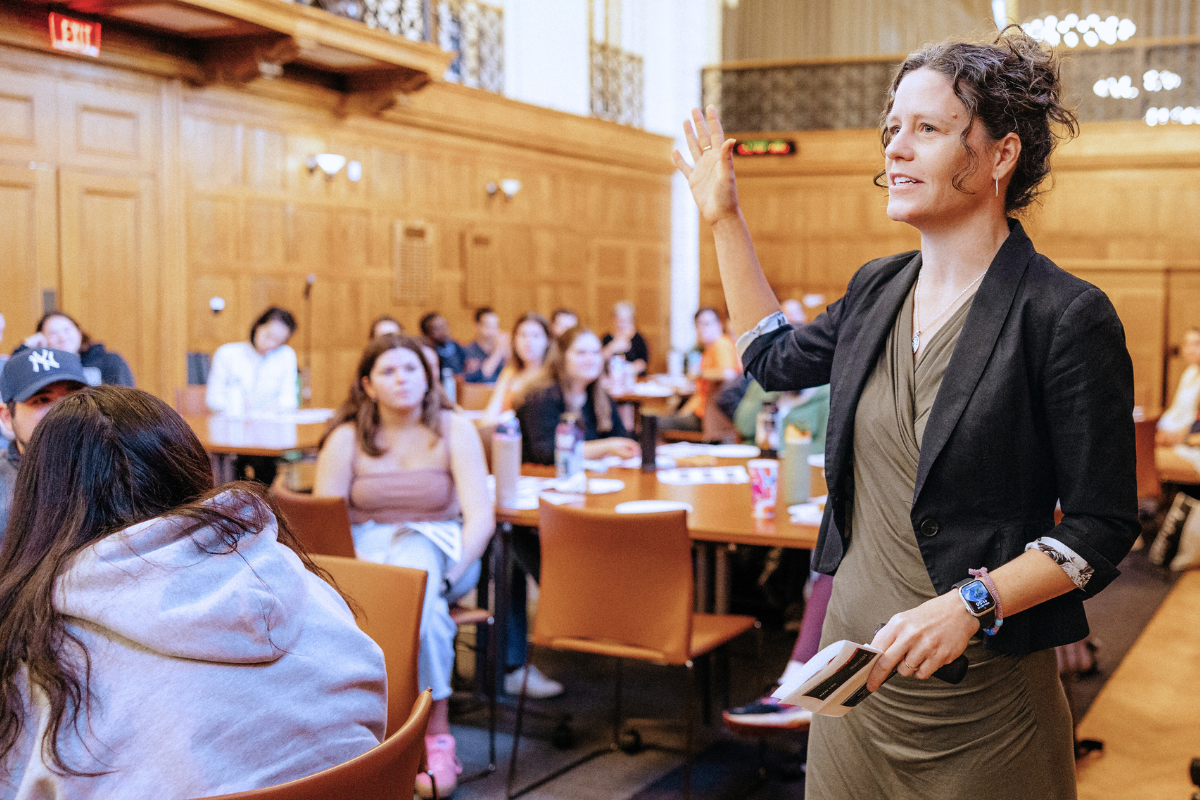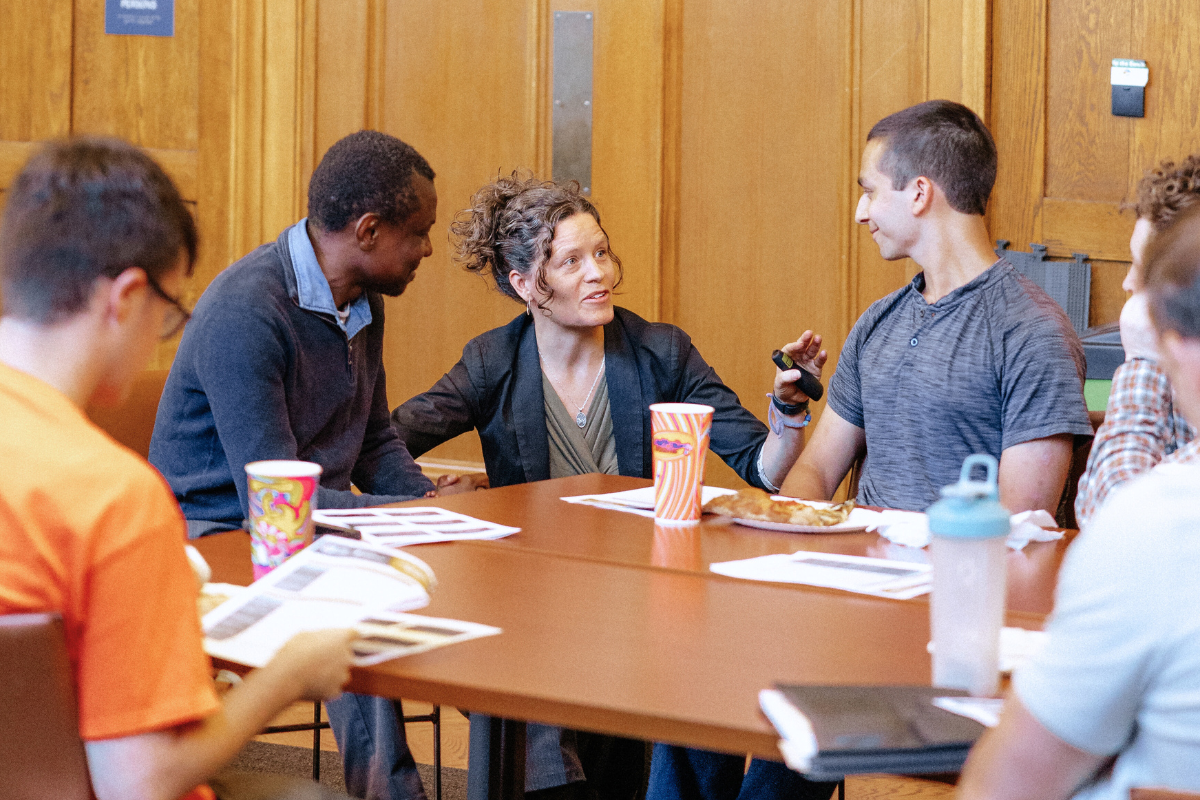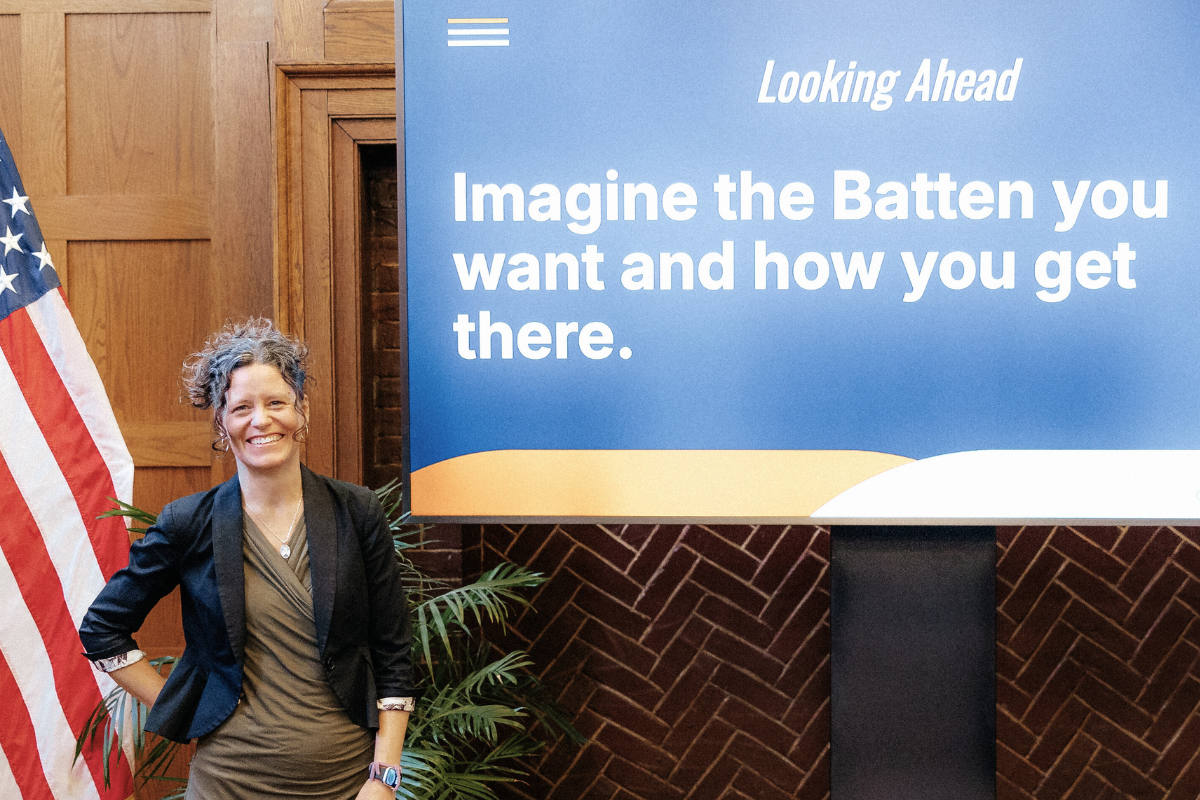Thriving During Election Season: Engaging in Conversations Across Difference

More than 60 participants comprising students, faculty and staff gathered in the Great Hall over a workshop-style Batten Hour this week to “have a discussion about how to have a discussion,” facilitated by Common Ground USA CEO Nealin Parker.
The workshop, dubbed “Thriving this Election Season: Learning from Disagreement,” was informed by Parker’s decades-long career in government and NGO senior positions dealing with conflict, poverty and social change domestically and internationally.
“This is giving you another tool in your toolbox; these problems are big enough we want every tool we can possibly muster to try to solve it,” Parker told the participants. “Being able to have a conversation across difference is the basis for every peace agreement that has ever ended war.”
But kitchen table conversations are just as important as peace agreements, she emphasized, noting that one of the most contentious assignments she gives students is to go home and have a difficult conversation with family over the Thanksgiving break.

Whether in the war room or the living room, she said, leaders spanning the gamut require holding space for hard topics that solicit learning and probe shared values. She offered succinct steps to better achieve those ends:
1) “To have or not to have,” that is the (two-part) question
Is there a genuine interest in wanting to learn from the other party? Do you feel prepared to have a difficult conversation? Particularly as it relates to deeply personal issues of identity/politics -- knowing yourself, your triggers and your emotional state before going into a difficult space are important.
2) Define success: From “lose” to “learn”
“More often than not you are having a conversation about feelings,” Parker explained, and when someone is trying to say “I don’t feel heard” and their conversation partner responds by spewing more perceived facts, the dialogue may be entirely missing the mark. “When you’re walking into conversations that are heated, about politics that are often about identity, you are walking into something about dignity,” she said.
Crucially, at the core of different opinions about contentious issues, there are often shared values – for example, she said that on both sides of the gun-ownership debate is often a shared value of protecting children; it’s the how to resolve the problem where differences arise. Conversations across differences enrich perspectives, Parker said, even and especially when the end goal is not necessarily to find strict alignment of opinions. This incurs the final idea of defining success: considering relationship instead of resolution. “These conversations succeed at the speed of trust, which makes them slow but durable.”
3) Prepare
Start to build the relationship in advance, if possible, and slow down the process of knowing where you stand, too. Practice writing out what you are worried and/or hopeful about. Mentally prepare to face the problem, not the personality attached to the conversation, and remember that body language matters.
4) Beginning
Preface with why this conversation is important. Maybe it sounds like, “I believe people who believe different things can talk about them and learn from it,” or “I respect you and I love you and I want to hear what you think.”
5) Middle
This is the discourse itself, and Parker reiterated the notion of separating people from the problem. “I can’t emphasize that enough,” she said, “If you can confer dignity in how you have these conversations, that by itself can be really powerful.”
She said a lot of her students would talk about their Thanksgiving dinner assignments and tear up, not because anyone’s political affiliation changed, but because their invitation to have a dialogue resulted in a family member saying they felt heard. “And that happened because of the dignity piece.”
6) End
Conclusion does not necessarily mean having “solved” the problem in the course of one conversation, Parker said. Sometimes the benefit is in opening the door to future dialogue.
“The principles are easy, the practice is hard,” and despite the many unknowns that may surface in the coming weeks around the election, she invited participants to think about another question: “In the chaos of what might happen in this country, what do you want this space to look like and how are you going to help get us there?”

